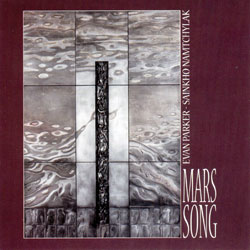
Intense meeting of saxophone legend Parker and the remarkable Tuvan improvising vocalist Namtchylak performing live at Music Gallery in Toronto, 1996.
Out of Stock
Quantity in Basket: None
Log In to use our Wish List
Shipping Weight: 5.00 units
Sample The Album:
Evan Parker-soprano saxophone, tenor saxophone
Sainkho Namtchylak-voice
Click an artist name above to see in-stock items for that artist.
UPC: 777405004222
Label: Les Disques Victo
Catalog ID: VICCD042
Squidco Product Code: 1069
Format: CD
Condition: New
Released: 1996
Country: Canada
Packaging: Jewel Tray
Recorded live at Music Gallery of Toronto on May 15th, 1996, by Paul Hodge.
"This duet performance between improvisational soprano saxophone wizard Evan Parker and Tuvan jazz and new music vocalist Sainkho Namtchylak was recorded live in 1996 at the Toronto Music Gallery. It was not the first time they had played together, though it was the first as a duo. The recording is aptly titled, not because the music is spaced out, but because it appears beyond the scope and breadth of human language to encompass, let alone embrace. A familiar figure, Parker is practically a grandfather on the new music scene, though you wouldn't know it from his playing during the last ten years, which has been sharper than at any time in his career. When it comes to boundaries on expression in sound, his fluttering, ribbonlike approach to playing saxophones takes on all comers. He uses any means at his disposal to get there: force, seduction, passivity, mischief, and even playing it straight! But in this matchup with Sainkho Namtchylak -- a woman whose voice is so demanding, so powerful, so utterly foreign in language, sound, phrase, and timbre -- he almost gets lost. Namtchylak left Tuva in Siberia to come to Moscow, where she first encountered jazz and began singing it. Later, moving to Berlin and other Western lands, she developed a kind of improvisational, "free" singing that keeps her homeland firmly in the foreground while incorporating Western approaches. In Tuva, the entire body is used when singing. Tuvan "throat singers" are now fairly common in the U.S., but Namtchylak comes from a different tradition. Throat, belly, legs, fingers, vulva, mouth, eyes, ears, nose, throat, etc., are all used to create different types of sound. Those sounds, juxtaposed against Parker's saxophones, are other, foreign, seemingly beyond the reaches of language -- even to her Tuvan countrywomen! This is the sound of emotional and spiritual warfare, primal birth, death, and the bardo before reincarnation as some other (pre-language) being that needs to somehow speak. Parker doesn't dance around her; he plays as if he is speaking through her as her body emotes guttural moans, shrieks, and indescribably horrific and yet gorgeous sound. This is the sound of a duet, it's true, but it's more the sound of two musicians trying to overcome incredible obstacles to learn to "speak" with one another, and in the process of "becoming" themselves. This is truly a difficult, awesome, and, yes, terrifying recording."-Thom Jurek
Get additional information at All Music
Artist Biographies
• Show Bio for Evan Parker "Evan Parker was born in Bristol in 1944 and began to play the saxophone at the age of 14. Initially he played alto and was an admirer of Paul Desmond; by 1960 he had switched to tenor and soprano, following the example of John Coltrane, a major influence who, he would later say, determined "my choice of everything". In 1962 he went to Birmingham University to study botany but a trip to New York, where he heard the Cecil Taylor trio (with Jimmy Lyons and Sunny Murray), prompted a change of mind. What he heard was "music of a strength and intensity to mark me for life ... l came back with my academic ambitions in tatters and a desperate dream of a life playing that kind of music - 'free jazz' they called it then." Parker stayed in Birmingham for a time, often playing with pianist Howard Riley. In 1966 he moved to London, became a frequent visitor to the Little Theatre Club, centre of the city's emerging free jazz scene, and was soon invited by drummer John Stevens to join the innovative Spontaneous Music Ensemble which was experimenting with new kinds of group improvisation. Parker's first issued recording was SME's 1968 Karyobin, with a line-up of Parker, Stevens, Derek Bailey, Dave Holland and Kenny Wheeler. Parker remained in SME through various fluctuating line-ups - at one point it comprised a duo of Stevens and himself - but the late 1960s also saw him involved in a number of other fruitful associations. He began a long-standing partnership with guitarist Bailey, with whom he formed the Music Improvisation Company and, in 1970, co-founded Incus Records. (Tony Oxley, in whose sextet Parker was then playing, was a third co-founder; Parker left Incus in the mid-1980s.) Another important connection was with the bassist Peter Kowald who introduced Parker to the German free jazz scene. This led to him playing on Peter Brötzmann's 1968 Machine Gun, Manfred Schoof's 1969 European Echoes and, in 1970, joining pianist Alex von Schlippenbach and percussionist Paul Lovens in the former's trio, of which he is still a member: their recordings include Pakistani Pomade, Three Nails Left, Detto Fra Di Noi, Elf Bagatellen and Physics. Parker pursued other European links, too, playing in the Pierre Favre Quartet (with Kowald and Swiss pianist Irene Schweizer) and in the Dutch Instant Composers Pool of Misha Mengelberg and Han Bennink. The different approaches to free jazz he encountered proved both a challenging and a rewarding experience. He later recalled that the German musicians favoured a "robust, energy-based thing, not to do with delicacy or detailed listening but to do with a kind of spirit-raising, a shamanistic intensity. And l had to find a way of surviving in the heat of that atmosphere ... But after a while those contexts became more interchangeable and more people were involved in the interactions, so all kinds of hybrid musics came out, all kinds of combinations of styles." A vital catalyst for these interactions were the large ensembles in which Parker participated in the 1970s: Schlippenbach's Globe Unity Orchestra, Chris McGregor's Brotherhood of Breath, Barry Guy's London Jazz Composers Orchestra (LJCO) and occasional big bands led by Kenny Wheeler. In the late 70s Parker also worked for a time in Wheeler's small group, recording Around Six and, in 1980, he formed his own trio with Guy and LJCO percussionist Paul Lytton (with whom he had already been working in a duo for nearly a decade). This group, together with the Schlippenbach trio, remains one of Parker's top musical priorities: their recordings include Tracks, Atlanta, Imaginary Values, Breaths and Heartbeats, The Redwood Sessions and At the Vortex. In 1980, Parker directed an Improvisers Symposium in Pisa and, in 1981, he organised a special project at London's Actual Festival. By the end of the 1980s he had played in most European countries and had made various tours to the USA, Canada, Australia, New Zealand and Japan. ln 1990, following the death of Chris McGregor, he was instrumental in organising various tributes to the pianist and his fellow Blue Notes; these included two discs by the Dedication Orchestra, Spirits Rejoice and lxesa. Though he has worked extensively in both large and small ensembles, Parker is perhaps best known for his solo soprano saxophone music, a singular body of work that in recent years has centred around his continuing exploration of techniques such as circular breathing, split tonguing, overblowing, multiphonics and cross-pattern fingering. These are technical devices, yet Parker's use of them is, he says, less analytical than intuitive; he has likened performing his solo work to entering a kind of trance-state. The resulting music is certainly hypnotic, an uninterrupted flow of snaky, densely-textured sound that Parker has described as "the illusion of polyphony". Many listeners have indeed found it hard to credit that one man can create such intricate, complex music in real time. Parker's first solo recordings, made in 1974, were reissued on the Saxophone Solos CD in 1995; more recent examples are Conic Sections and Process and Reality, on the latter of which he does, for the first time, experiment with multi-tracking. Heard alone on stage, few would disagree with writer Steve Lake that "There is, still, nothing else in music - jazz or otherwise - that remotely resembles an Evan Parker solo concert." While free improvisation has been Parker's main area of activity over the last three decades, he has also found time for other musical pursuits: he has played in 'popular' contexts with Annette Peacock, Scott Walker and the Charlie Watts big band; he has performed notated pieces by Gavin Bryars, Michael Nyman and Frederic Rzewski; he has written knowledgeably about various ethnic musics in Resonance magazine. A relatively new field of interest for Parker is improvising with live electronics, a dialogue he first documented on the 1990 Hall of Mirrors CD with Walter Prati. Later experiments with electronics in the context of larger ensembles have included the Synergetics - Phonomanie III project at Ullrichsberg in 1993 and concerts by the new EP2 (Evan Parker Electronic Project) in Berlin, Nancy and at the 1995 Stockholm Electronic Music Festival where Parker's regular trio improvised with real-time electronics processed by Prati, Marco Vecchi and Phillip Wachsmann. "Each of the acoustic instrumentalists has an electronic 'shadow' who tracks him and feeds a modified version of his output back to the real-time flow of the music." The late 80s and 90s brought Parker the chance to play with some of his early heroes. He worked with Cecil Taylor in small and large groups, played with Coltrane percussionist Rashied Ali, recorded with Paul Bley: he also played a solo set as support to Ornette Coleman when Skies of America received its UK premiere in 1988. The same period found Parker renewing his acquaintance with American colleagues such as Anthony Braxton, Steve Lacy and George Lewis, with all of whom he had played in the 1970s (often in the context of London's Company festivals). His 1993 duo concert with Braxton moved John Fordham in The Guardian to raptures over "saxophone improvisation of an intensity, virtuosity, drama and balance to tax the memory for comparison". Parker's 50th birthday in 1994 brought celebratory concerts in several cities, including London, New York and Chicago. The London performance, featuring the Parker and Schlippenbach trios, was issued on a highly-acclaimed two-CD set, while participants at the American concerts included various old friends as well as more recent collaborators in Borah Bergman and Joe Lovano. The NYC radio station WKCR marked the occasion by playing five days of Parker recordings. 1994 also saw the publication of the Evan Parker Discography, compiled by ltalian writer Francesco Martinelli, plus chapters on Parker in books on contemporary musics by John Corbett and Graham Lock. Parker's future plans involve exploring further possibilities in electronics and the development of his solo music. They also depend to a large degree on continuity of the trios, of the large ensembles, of his more occasional yet still long-standing associations with that pool of musicians to whose work he remains attracted. This attraction, he explained to Coda's Laurence Svirchev, is attributable to "the personal quality of an individual voice". The players to whom he is drawn "have a language which is coherent, that is, you know who the participants are. At the same time, their language is flexible enough that they can make sense of playing with each other ... l like people who can do that, who have an intensity of purpose." " ^ Hide Bio for Evan Parker • Show Bio for Sainkho Namtchylak "Sainkho Namtchylak is an experimental singer, born in 1957 in a secluded village in the south of Tuva. She is proficient in overtone singing; her music encompasses avant-jazz, electronica, modern composition and Tuvan influences. In Tuva, numerous cultural influences collide: the Turkic roots and culture it shares with Central Asian states, the Xinjiang Uyghur Autonomous Region, Bashkortostan and Tatarstan; the strong Mongolic cultural influence and traditions it shares with Mongolia, Inner Mongolia, Buryatia and Kalmykia; the cultural influences from the various Siberian nomadic ethnic groups such as Samoyeds, Yeniseians, Evenks and from the Russian Old Believers, the migrant and resettled populations from Ukraine, Tatarstan and other minority groups west of the Urals. All of these, to extents, impact on Namtchylak's voice, although the Siberian influences dominate: her thesis produced while studying voice, first at the University of Kyzyl, then in the Gnesins Institute in Moscow during the 1980s focussed on Lamaistic and cult musics of minority groups across Siberia, and her music frequently shows tendencies towards Tungus-style imitative singing. Being the daughter of a pair of schoolteachers, she grew up in an isolated village on the Tuvan/Mongolian border, exposed to the local overtone singing - something that was generally reserved for the males; in fact, females were actively discouraged from learning it (even now, the best-known practitioners remain male, artists like Huun-Huur-Tu and Yat-Kha). However, she learned much of her traditional repertoire from her grandmother, and went on to study music at the local college, but she was denied professional qualifications. Quietly she studied the overtone singing, as well as the shamanic traditions of the region, before leaving for study further in Moscow (Tuva was, at that time, part of the U.S.S.R.). Her degree completed, she returned to Tuva where she became a member of Sayani, the Tuvan state folk ensemble, before abandoning it to return to Moscow and joining the experimental Tri-O, where her vocal talents and sense of melodic and harmonic adventure could wander freely. That first brought her to the West in 1990, although her first recorded exposure came with the Crammed Discs compilation Out of Tuva. Once the Soviet Union had collapsed, she moved to Vienna, making it her base, although she traveled widely, working in any number of shifting groups and recording a number of discs that revolved around free improvisation - not unlike Yoko Ono - as well as performing around the globe. It was definitely fringe music, although Namtchylak established herself very firmly as a fixture on that fringe. In 1997 she was the victim of an attack that left her in a coma for several weeks. Initially she thought it was some divine retribution for her creative hubris, and seemed to step back when she recorded 1998's Naked Spirit, which had new age leanings. However, by 2000 she seemed to have overcome that block, releasing Stepmother City, her most accessible work to date, where she seemed to really find her stride, mixing traditional Tuvan instruments and singing with turntables and effects, placing her in a creative firmament between Yoko and Björk, but with the je ne sais quoi of Mongolia as part of the bargain. A showcase at the WOMEX Festival in Berlin brought her to the attention of many, and in 2001 a U.S. tour was planned. After graduating, Namtchylak worked with several ensembles: the Moscow State Orchestra; the Moscow-based jazz ensemble Tri-O (since 1989); School of Dramatic Art under the direction of Anatoly Vasiliev (Moscow), various orchestras in Kyzyl, the Tuvan 'folkloric orchestra'-a far less sanitised example of folk baroque than, say, existed in pre-independence Kazakhstan-that has housed many of Tuva's other important singers. However, for several years Namtchylak annually invited foreign musicians to Tuva to promote Tuvan culture. Based in Vienna, Namtchylak sculpted Stepmother City to reflect her ambivalent feelings about European metropolis. Calling herself "first and foremost a woman from the Steppes," Namtchylak's first musical inspiration came from her nomadic grandmother, who would sing lullabies for hours. She grew up in a culture where people just sing when they feel like it-singing when they're happy and singing when they're sad. Denied professional credentials from a local college where her explorative nature led her toward forbidden male-dominated overtone singing styles, Namtchylak transferred to Moscow where she discovered Russian improvisation and where she also continue to study about vocal techniques of Siberian lamaistic and shamanistic traditions. Audiences are astounded by the diversity of sounds Namtchylak can produce with her voice, from operatic soprano to birdlike squawks, from childlike pleas to soulful crooning; which at various moments elicit comparisons to Zap Mama, Patti Smith, Billie Holiday, and Nina Hagen. In 1997, Namtchylak was horrifically attacked by Tuvinian racketeers which left her in a coma for two weeks. Again, sources regarding this contradict - others maintain that she underwent surgery for a severe malignant brain tumor; regardless, 1997 marked an appreciable change in her life. Since then, she has been resident in exile in Vienna, and has also recorded more prolifically as a solo artist - although she has released over thirty albums in the past twenty years, only seven have been entirely solo. Namtchylak claims that music and spirituality are related by desire, or the tension that yells to reawaken people. Eager to take part in the process of remembering what has been forgotten, Stepmother City presents itself like a map, proposing routes to connect Western physicality with Eastern spirituality.[2] In 2005, the Italian publishing house Libero di Scrivere released a book of poetry Karmaland. In 2006 in Saint Petersburg, a book Chelo-Vek (a play on words in Russian, conflating "chelovek" meaning "person" and, though the hyphen, obsoletism "chelo" meaning "front" or "forehead" and "vek" meaning "age" or "eon" or "century", into something like "front-eon") was published in Russian, Tuvinian and in English. in 2016, she released "like a bird or spirit, not a face", an album produced by Grammy-winner Ian Brennan (music producer, author) and featuring members of Tinariwen." ^ Hide Bio for Sainkho Namtchylak
1/26/2026
Have a better biography or biography source? Please Contact Us so that we can update this biography.
1/26/2026
Have a better biography or biography source? Please Contact Us so that we can update this biography.
Track Listing:
1. Song of the Eclipse 15:53
2. Transit of Venus 8:16
3. Time, That Other Labyrinth 20:58
4. Mars Song 11:09
5. Hurzu 5:37
Improvised Music
Unusual Vocal Forms
Victo
Parker, Evan
Jazz
European Improvisation and Experimental Forms
Recordings by or featuring Reed & Wind Players
Duo Recordings
Before April-2006
Search for other titles on the label:
Les Disques Victo.











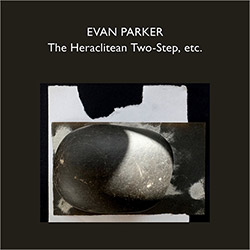

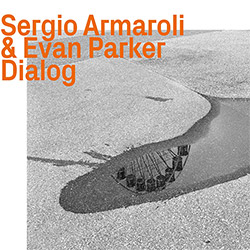

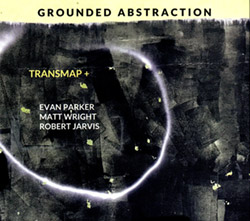



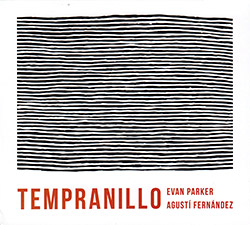
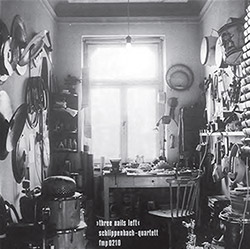
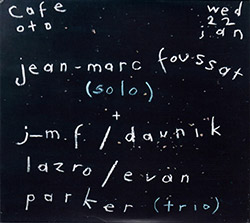

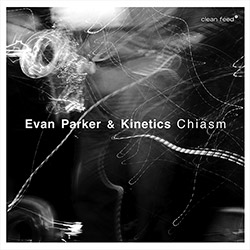

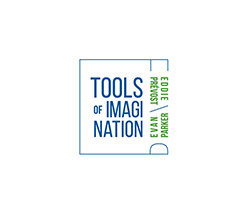


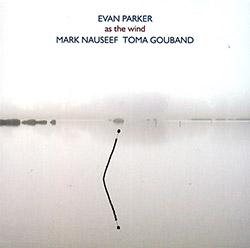

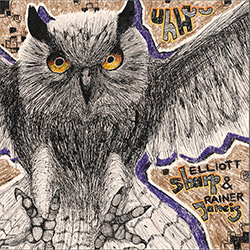
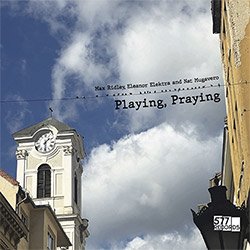

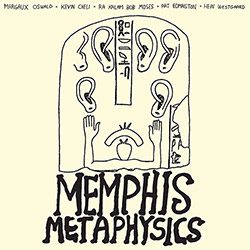
![Hoffman, Christopher: REX [VINYL]](https://www.teuthida.com/productImages/misc4/36934.jpg)
![Wrens: Half Of What You See [VINYL]](https://www.teuthida.com/productImages/misc4/37095.jpg)

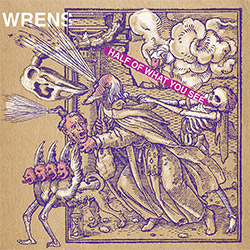
![Cartier, Pierre: Chansons de Douve [2 CDs]](https://www.teuthida.com/productImages/misc3/cartierChansonsDouve.jpg)



![Davies, Angharad / Burkhard Beins : Meshes Of The Evening [VINYL]](https://www.teuthida.com/productImages/misc4/36990.jpg)
![Bussmann, Nicholas / Sven-Ake Johansson / Yan Jun: Tea Time [Vinyl]](https://www.teuthida.com/productImages/misc4/36991.jpg)
![Feldman, Morton / GBSR Duo w/ Taylor MacLennan: Trios [6 CD BOX SET]](https://www.teuthida.com/productImages/misc4/37020.jpg)
![Williams, Jessica: Blue Abstraction: Prepared Piano Project 1985-1987 [VINYL]](https://www.teuthida.com/productImages/misc4/37080.jpg)
![Levin, Daniel / Laurent Estoppey: Freedom From The Known [VINYL]](https://www.teuthida.com/productImages/misc4/37091.jpg)
![Fagaschinski, Kai: Aerodynamics [VINYL 2 LPs]](https://www.teuthida.com/productImages/misc4/36992.jpg)
![Allbee, Liz: Breath Vessels [VINYL]](https://www.teuthida.com/productImages/misc4/37012.jpg)
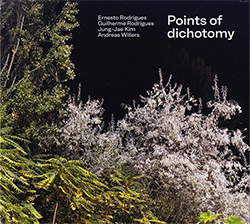
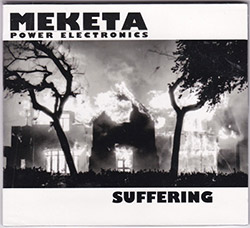


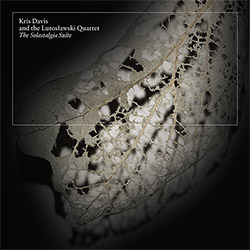
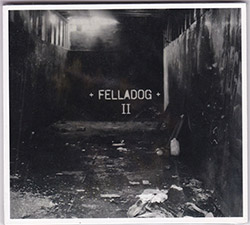


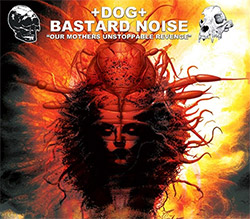



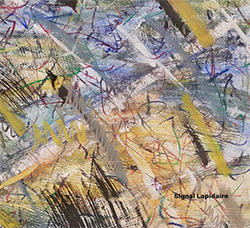

![Rodrigues, Ernesto / Jung-Jae Kim / Guilherme Rodrigues / Eric Bauer / Stephen Flinn: 5 In The Afternoon [2CDs]](https://www.teuthida.com/productImages/misc4/36957.jpg)



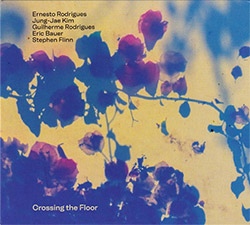





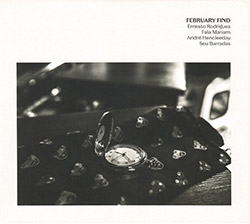
![Evans, Peter / Being & Becoming: Ars Ludricra [VINYL + DOWNLOAD]](https://www.teuthida.com/productImages/misc4/37026.jpg)

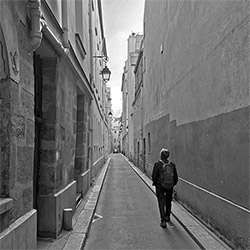
![Belorukov, Ilia / Alex Riva: Wrestling For Futility [CASSETTE w/DOWNLOAD]](https://www.teuthida.com/productImages/misc4/36994.jpg)


![Genthon, Anouck / Lionel Marchetti: Suite Blanche [2 CDs]](https://www.teuthida.com/productImages/misc4/36642.jpg)
![Toeplitz, Kasper T.: Erosions Programmees [CD + BOOKLET]](https://www.teuthida.com/productImages/misc4/36639.jpg)
![Gate, The : Almost Live [CASSETTE + MAGAZINE]](https://www.teuthida.com/productImages/misc4/36836.jpg)






![A Magic Whistle: The Solar Cell [VINYL]](https://www.teuthida.com/productImages/misc4/36658.jpg)

![McGee, Hal: Columbus Expedition [Cassette w/ Download]](https://www.teuthida.com/productImages/misc4/36650.jpg)


![Jaeger, Kassel: Fernweh [VINYL 2 LPs]](https://www.teuthida.com/productImages/misc4/36541.jpg)




![Frey, Jurg : Composer, Alone [3 CDs]](https://www.teuthida.com/productImages/misc4/36927.jpg)








![Frey, Jurg with ensemble]h[iatus: Je Laisse A La Nuit Son Poids D](https://www.teuthida.com/productImages/misc4/36988.jpg)




![Pisaro-Liu, Michael: Within (2) / Appearance (2) [2 CDs]](https://www.teuthida.com/productImages/misc4/36831.jpg)










![Musicworks Magazine: #151 Summer 25 [MAGAZINE + CD]](https://www.teuthida.com/productImages/misc4/36559.jpg)

![Brown, Dan / Dan Reynolds: Live At The Grange Hall [unauthorized][CASSETTE]](https://www.teuthida.com/productImages/misc4/36245.jpg)

![Zorn, John: The Song of Songs [CD + CD BOOK]](https://www.teuthida.com/productImages/misc4/36923.jpg)

![Coultrain: Mundus [COLORED VINYL]](https://www.teuthida.com/productImages/misc4/33056.jpg)
![Hprizm: Signs Remixed [COLORED VINYL]](https://www.teuthida.com/productImages/misc4/30635.jpg)
![Halls Of the Machine: All Tribal Dignitaries [CASSETTE w/ DOWNLOAD]](https://www.teuthida.com/productImages/misc4/36134.jpg)



![Koenjihyakkei: Live at Club Goodman [2 CDs]](https://www.teuthida.com/productImages/misc4/36111.jpg)

![Sorry For Laughing (G. Whitlow / M. Bates / Dave-Id / E. Ka-Spel): Rain Flowers [2 CDS]](https://www.teuthida.com/productImages/misc4/35985.jpg)

![Rolando, Tommaso / Andy Moor : Biscotti [CASSETTE w/ DOWNLOADS]](https://www.teuthida.com/productImages/misc4/36106.jpg)


![Electric Bird Noise / Derek Roddy: 8-10-22 [CD EP]](https://www.teuthida.com/productImages/misc4/35970.jpg)








![Elephant9 : Mythical River [VINYL]](https://www.teuthida.com/productImages/misc4/34624.jpg)



![Elephant9 with Terje Rypdal: Catching Fire [VINYL 2 LPs]](https://www.teuthida.com/productImages/misc4/35355.jpg)
![Coley, Byron: Dating Tips for Touring Bands [VINYL]](https://www.teuthida.com/productImages/misc4/17906.jpg)

![Lost Kisses: My Life is Sad & Funny [DVD]](https://www.teuthida.com/productImages/misc4/lostKissesDVD.jpg)